
Covid-19: The secret life of museums during lockdown
"I've absolutely loved it," says James Maclaine, senior fish curator at the Natural History Museum. "Obviously I have missed my colleagues but the peace and quiet has been really nice.
"Walking into an area like our central hall and having that majestic space all to yourself is such a privilege," he says. And amid the pandemic, it can feel like a sanctuary.
"When you consider the chaos going on elsewhere, it was definitely a place I could go where I would forget some of the horror."
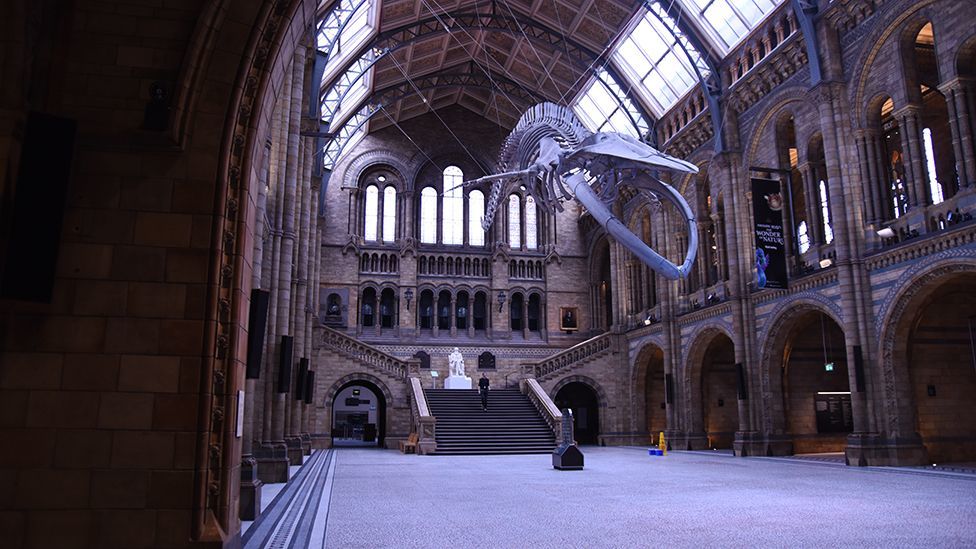
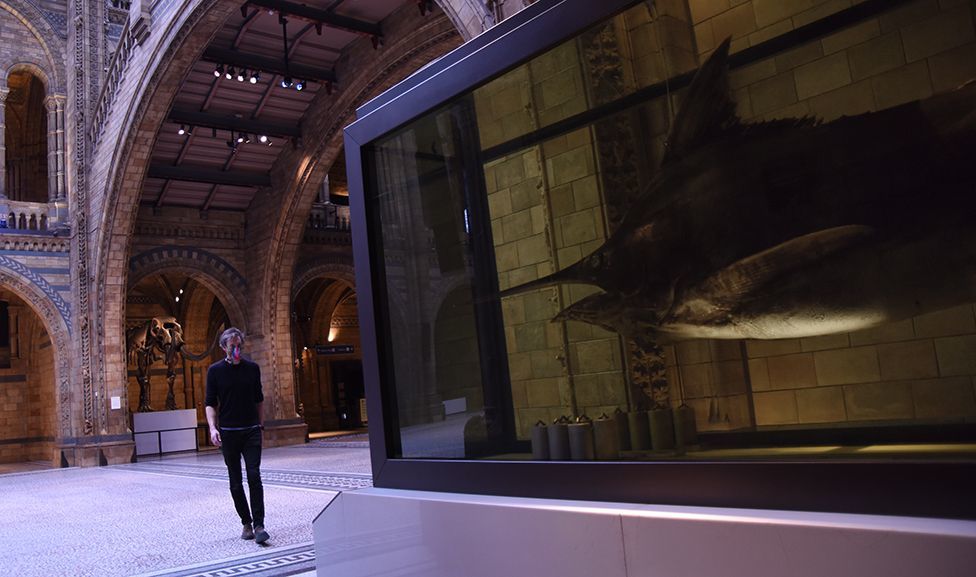
During each lockdown, James has cycled to the London museum two days a week for essential work. He checks the wet collections - specimens preserved in alcohol and formalin - as well as doing jobs for colleagues and caring for the museum's colony of live beetles. (The flesh-eating beetles are used to strip meat from new specimens, so just the skeletons are left.)
He looks for water leaks or any fire risks - "which in a building filled with ethanol would be disastrous" - as well as insect pests among the dried specimens in the basement. "Another potential problem is the frozen collection," he says. "We have a lot of material in freezers which we haven't been able to process yet and if anything goes wrong there it would be extremely unpleasant for all concerned."
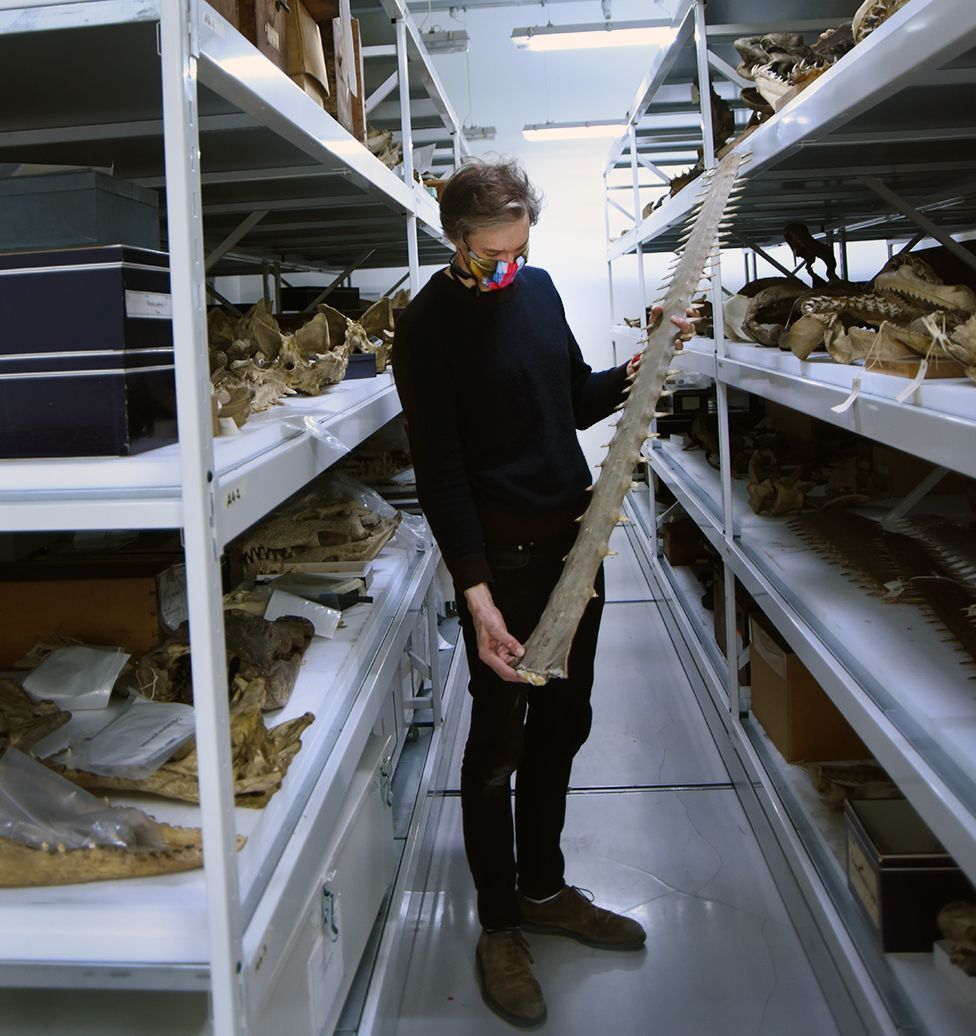
Stuffed lions and tigers also had to be brushed and vacuumed to get rid of dust, while elsewhere oil was leaking from an engine.
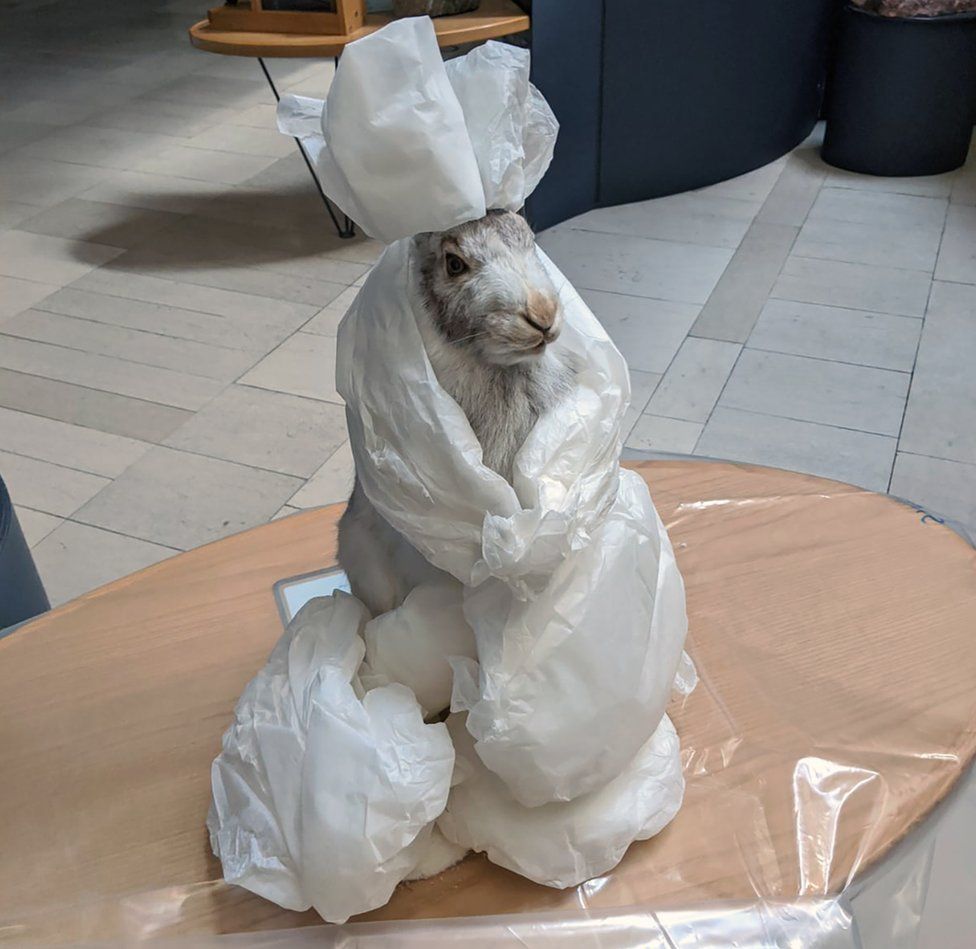
"It's definitely an unusual experience," says Chanté. "I find walking around an empty museum quite weird, and inspiring in another way. Before Covid, even when the museum was closed it was still a time of activity. It was never as quiet as it is now."
"I feel very, very lucky, really privileged," she adds. "It's a remarkable job. In a way, at times like this, you realise how important national collections are."
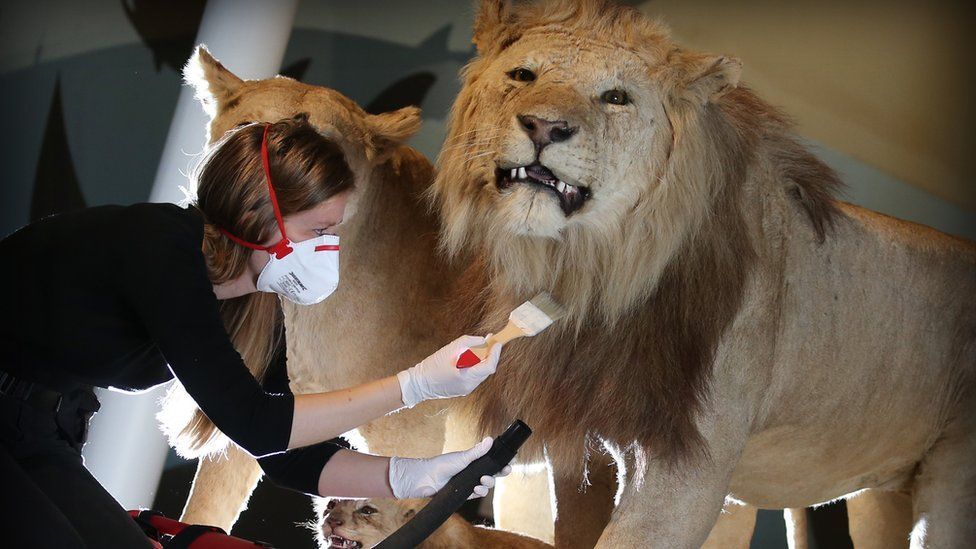
"This is the collecting project we never wanted to happen," she says. "Obviously it is a sad story... but a lot of the objects we are collecting are actually demonstrating human ingenuity in the face of adversity."
One item she has is the vial and syringe used in the UK's first vaccination, which were driven to the museum by NHS England's medical director Prof Stephen Powis.
"I did well up, it was quite a moment," says Natasha. "These vaccine vials will be thrown away in their millions. But one was a historic item, it's unique."
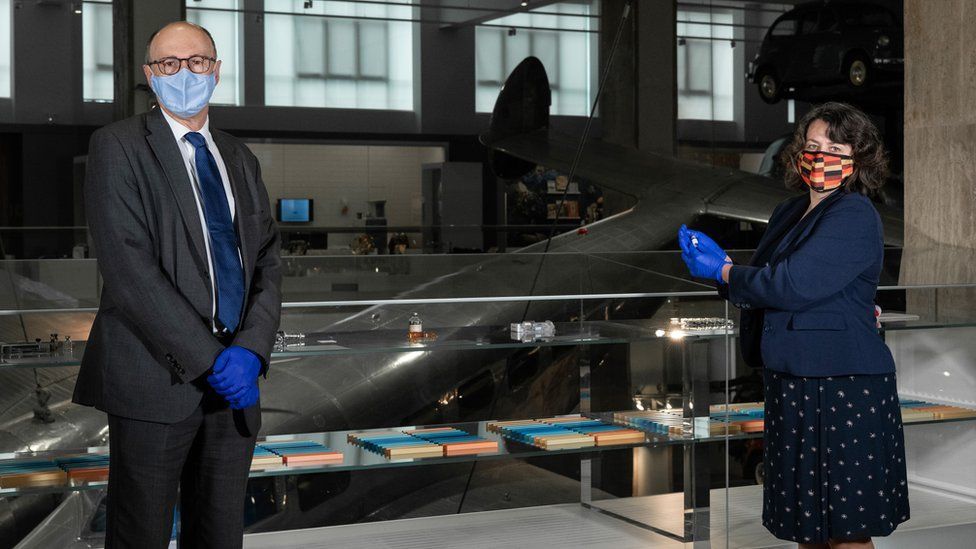
A few miles away, inside the British Museum, staff are grappling with something more ancient. Egyptian mummies and coffins are being prepared for a future international tour, while staff have been conserving and mounting collections for shows due to open in the spring.
Engineers are also on site to boost the level of ventilation leading to a delicate balancing act of Covid guidance and what the items need.
"We miss our visitors - they directly contribute to the care of the collections by increasing the temperature and humidity in the building which helps preserve the collection," says the museum's head of collection care Sandra Smith. Staff also miss visitors' "curiosity, enthusiasm, sense of wonder and awe", she adds.
Galleries are also busy preparing for when visitors can reopen. At the Tate Liverpool, art handling manager Jenny Hunter and her team are removing the current displays and setting up the delayed Liverpool Biennial.
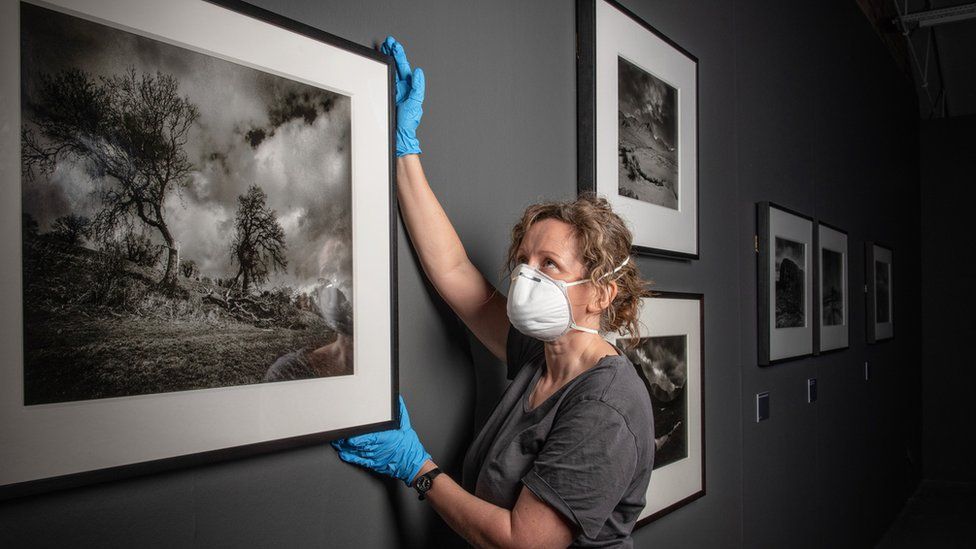
"It's unavoidable to work [less than] two metres apart when you're art handling," she says - especially if the art is big or heavy. Her teams work in bubbles of two or three, wear medical-grade face masks and their shifts are staggered. There's even been a timetable for the staffroom.
But the gallery has been a calming space, says Jenny. "It feels a luxury having all this artwork to yourself." In one exhibition, the lights are off to preserve the art. "I go up to check everything's ok, it's quite eerie."
At the Tate in St Ives, gardener Jodi Dickinson - who tends to the Barbara Hepworth Sculpture Garden - says his seasonal agenda of work "continues in the garden, despite the chaos in the world".
He's missed knowing which plants people ask about or decide to photograph. "All these things help me to build a sense of what people value in the garden. Without the people... something very integral is missing."
There have been some positives of lockdown. At the National Museum of Scotland, staff working from home have had time to start digitising historical records. And Chanté says she has been impressed with how museums have rallied together to cope. "We didn't have to invent the wheel if someone else had one," she says.
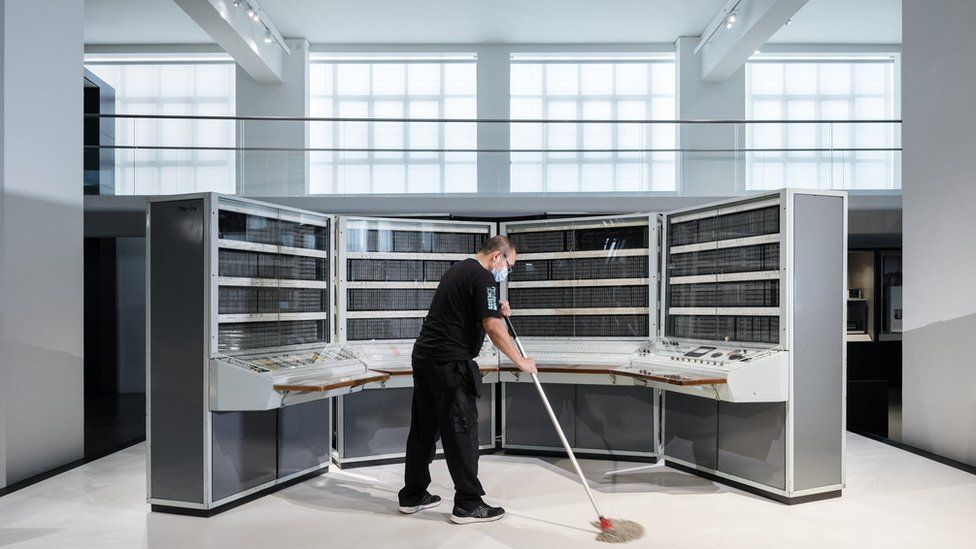
For James, it's meant he's had the time to work on some personal projects: "There was one job that I started in 2004 that I've finally been able to finish."
And of course, staff are looking forward to when they can reopen again. "A perk of the job is to be in the museum after hours and to walk through when it's echoing and silent," says Natasha. "But suddenly, when you're closed to the public full time, it stops being a perk and starts being quite sad. We want to see people."
Chanté agrees. "That period where we reopened just before this lockdown was just hands-down wonderful. It was just so exciting. The first people were this family with this little boy dressed as superman who ran into the gallery. He was so full of joy."











